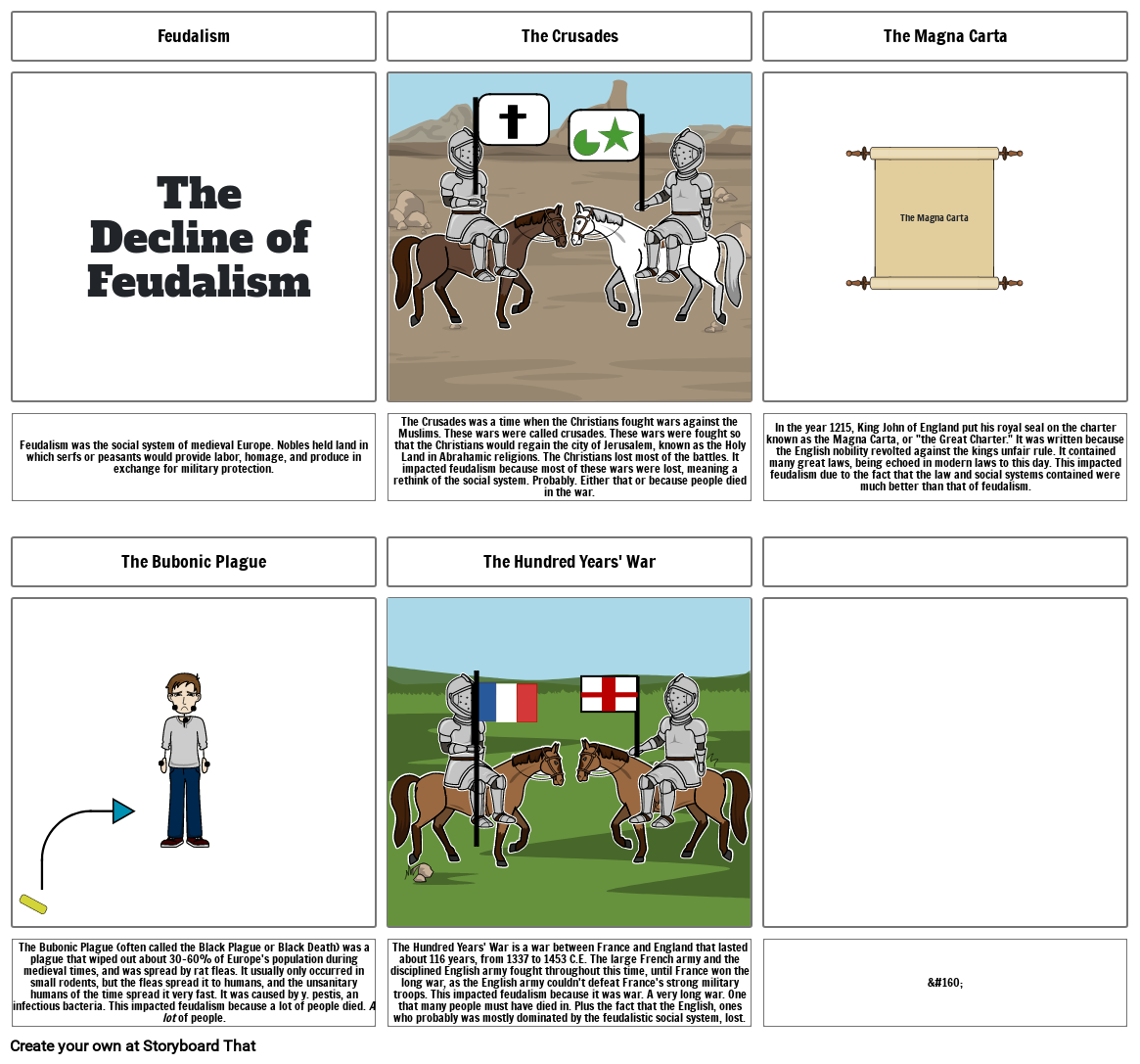The Decline of Feudalism

Öykü Penceresi Metni
- Feudalism
- The Decline of Feudalism
- The Crusades
- The Magna Carta
- The Magna Carta
- Feudalism was the social system of medieval Europe. Nobles held land in which serfs or peasants would provide labor, homage, and produce in exchange for military protection.
- The Bubonic Plague
- The Crusades was a time when the Christians fought wars against the Muslims. These wars were called crusades. These wars were fought so that the Christians would regain the city of Jerusalem, known as the Holy Land in Abrahamic religions. The Christians lost most of the battles. It impacted feudalism because most of these wars were lost, meaning a rethink of the social system. Probably. Either that or because people died in the war.
- The Hundred Years' War
- In the year 1215, King John of England put his royal seal on the charter known as the Magna Carta, or the Great Charter. It was written because the English nobility revolted against the kings unfair rule. It contained many great laws, being echoed in modern laws to this day. This impacted feudalism due to the fact that the law and social systems contained were much better than that of feudalism.
- The Bubonic Plague (often called the Black Plague or Black Death) was a plague that wiped out about 30-60% of Europe's population during medieval times, and was spread by rat fleas. It usually only occurred in small rodents, but the fleas spread it to humans, and the unsanitary humans of the time spread it very fast. It was caused by y. pestis, an infectious bacteria. This impacted feudalism because a lot of people died. A lot of people.
- The Hundred Years' War is a war between France and England that lasted about 116 years, from 1337 to 1453 C.E. The large French army and the disciplined English army fought throughout this time, until France won the long war, as the English army couldn't defeat France's strong military troops. This impacted feudalism because it was war. A very long war. One that many people must have died in. Plus the fact that the English, ones who probably was mostly dominated by the feudalistic social system, lost.
30 Milyondan Fazla Storyboard Oluşturuldu

